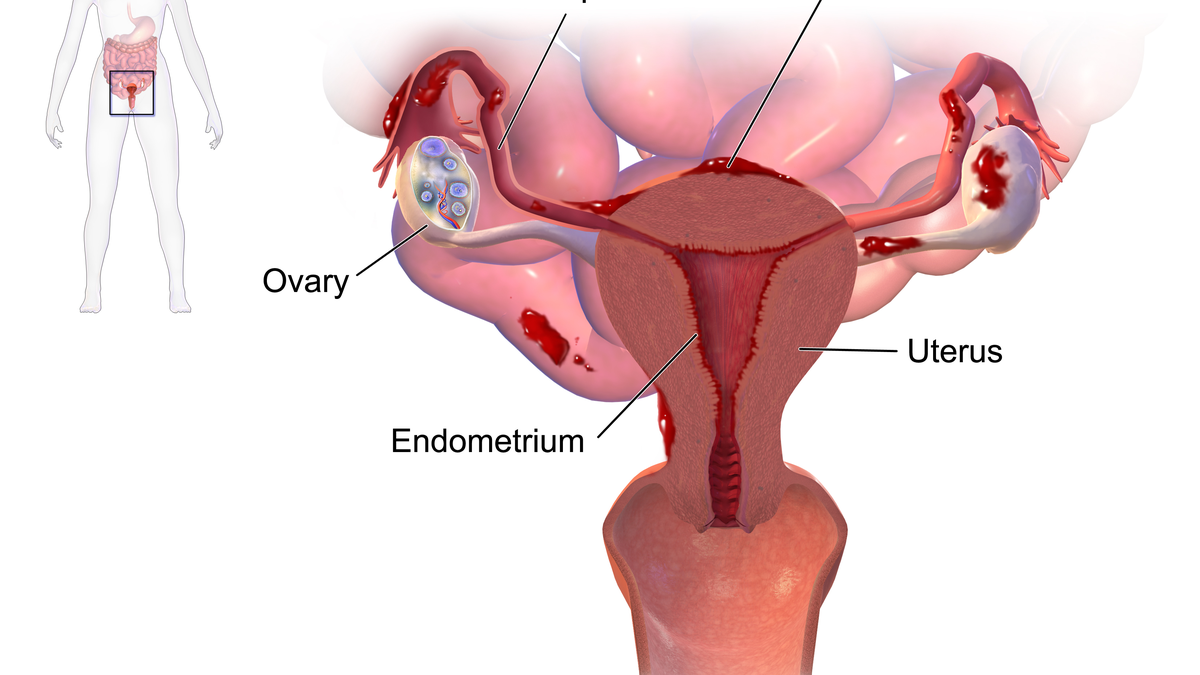Important Facts For Prelims
Link Between Bacterial Infection and Endometriosis
- 21 Jul 2023
- 3 min read
Why in News?
Despite the prevalence of Endometriosis, the underlying causes and mechanisms of endometriosis remain unclear. However, a recent study has shed light on a potential link between a specific bacteria and the development and aggravation of endometriosis.
What is Endometriosis?
- About:
- It is a chronic condition that affects that affects approximately one in 10 women worldwide. It occurs when the tissue that normally lines the uterus (endometrium) grows outside of it, forming lesions on the ovaries, fallopian tubes, bladder, bowel or other pelvic organs.
- The exact cause of endometriosis is still unknown.
- Impacts:
- Women with endometriosis often experience infertility, chronic pain during periods, pelvic pain, bloating, nausea, fatigue, and may also be at a higher risk of depression and anxiety.
- Current Available Treatments:
- Hormonal Therapy: Certain hormone-based treatments, like birth control pills or hormone-containing intrauterine devices, can help control the growth of endometrial tissue.
- Surgery: Laparoscopic surgery can be performed to remove or destroy the endometrial tissue growths.
- Fertility Treatment: For women facing fertility issues, assisted reproductive technologies like in vitro fertilization (IVF) can be considered.
What is the Bacterial Infection Linked to Endometriosis?
- The bacterial infection linked to endometriosis is caused by a species of bacteria called Fusobacterium.
- Fusobacterium is normally found in the mouth and the gut, where it can cause dental plaque, gum disease, appendicitis and inflammatory bowel disease.
- However, it can also spread to other parts of the body through the bloodstream or sexual contact, causing infections in the lungs, brain, liver or reproductive organs.
- The link between Fusobacterium and endometriosis was discovered by a team of researchers from Japan, who conducted a study involving 155 women, 79 of whom had endometriosis and 76 of whom did not.
- The researchers analyzed the DNA of the bacteria present in the blood, saliva and vaginal fluid of the women, and found that Fusobacterium was detected in 64% of the women with endometriosis, compared to only 7% of the women without endometriosis.
- This finding could help expand the range of treatment options for endometriosis. For example, antibiotics or probiotics could be used to target Fusobacterium or restore a healthy balance of bacteria in the body.
- However, more research is needed to confirm the causal relationship between Fusobacterium and endometriosis, and to understand how it affects different women with different symptoms and severity of the condition.








